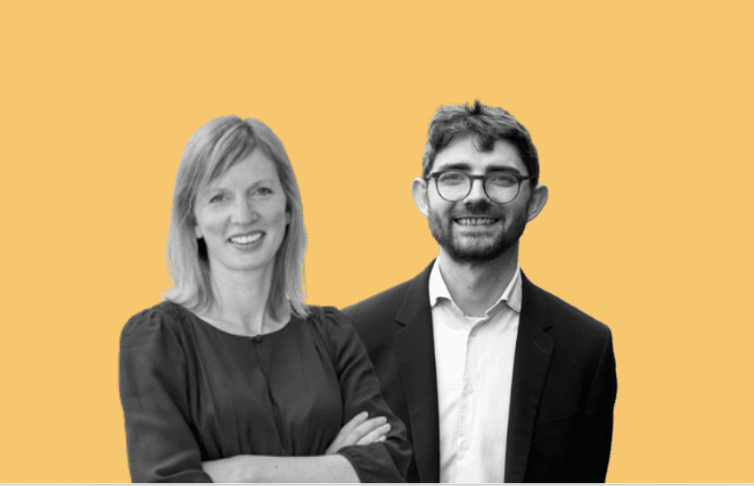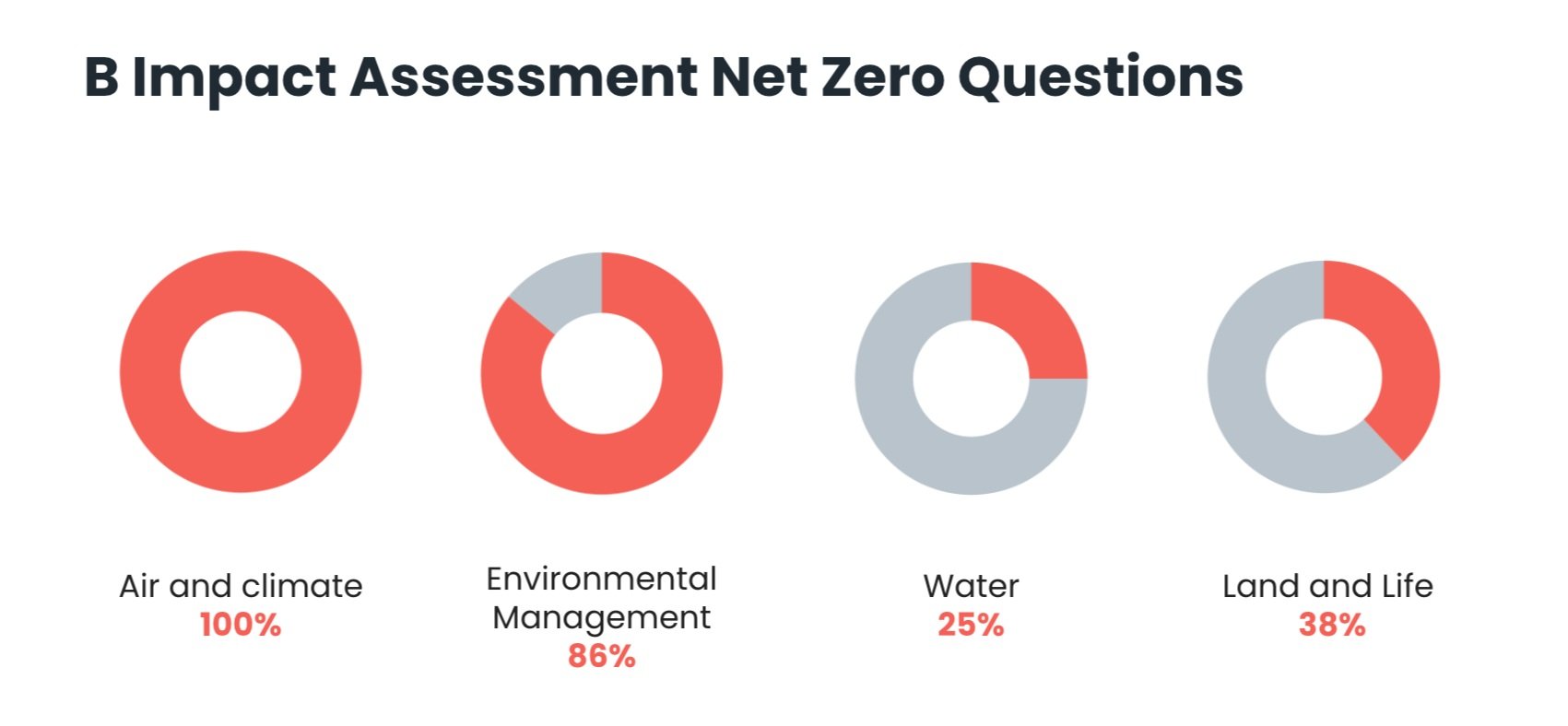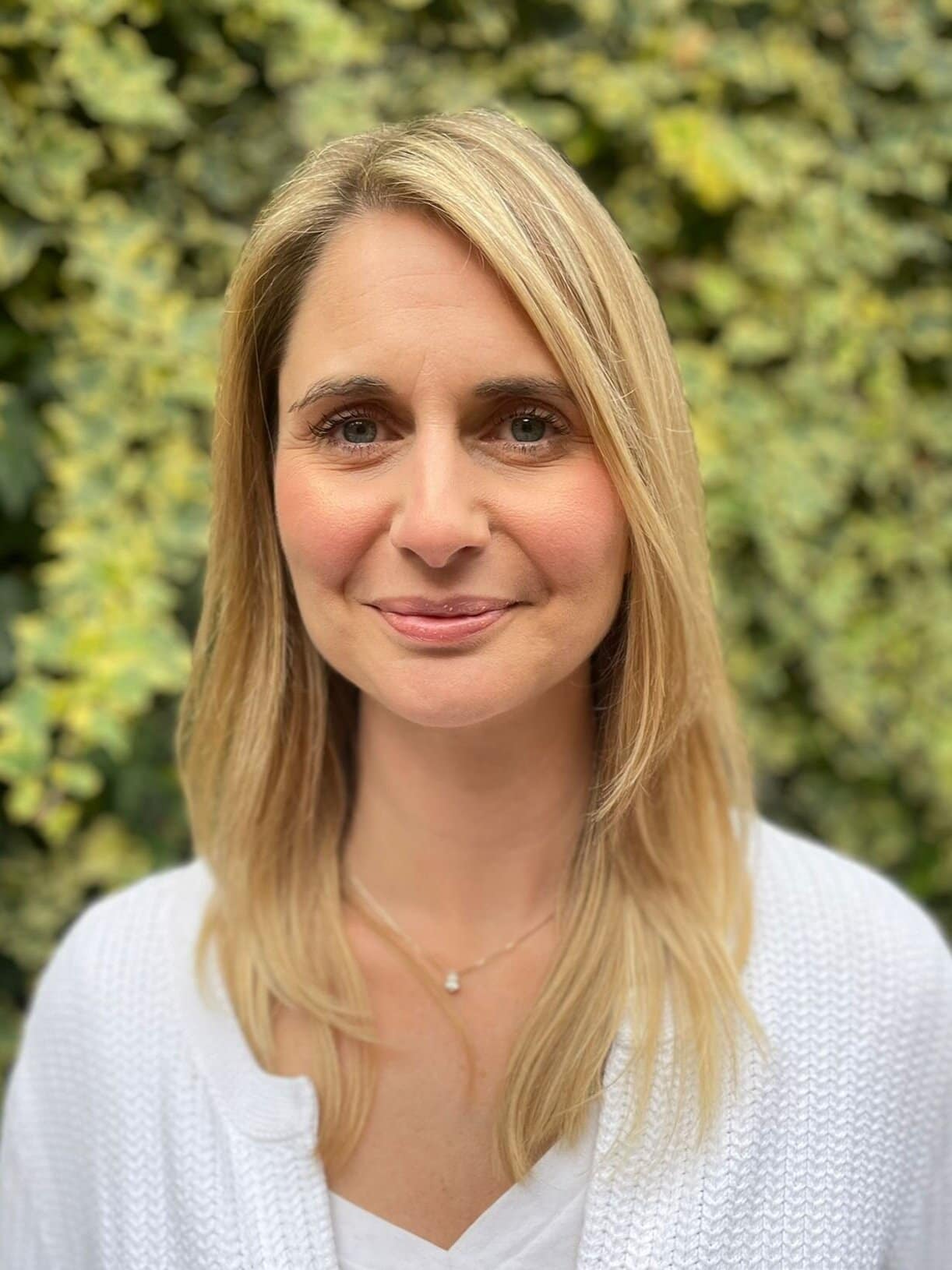
As we face the realities of a climate emergency, businesses are struggling with how to set realistic and challenging sustainability goals and targets. Crucially they want to know how to take meaningful action to meet those targets. It’s a daunting task. At Seismic we believe in simplifying things, educating people, and breaking it down to fit with your reality.
So where do Net Zero and B Corp fit in?
People think Net Zero and B Corp are two separate pillars. But there’s actually a huge overlap. For a holistic ESG approach, you need to match up social and environmental. Carbon isn’t just stuff that comes out of a chimney, it’s part of everything! A joined-up approach can help you be more successful with your carbon reduction efforts, your social efforts and your B Corp efforts – here’s how.
A quick introduction to Net Zero
There are three levels of carbon ambition for a company:
- Carbon NeutralThis is about balancing your emissions by removing them from the atmosphere. You do this by measuring your emissions, and then offsetting them. (This is not Net Zero)
- Carbon NegativeThis is one step on from Carbon Neutral. Once you’ve balanced your own emissions, you offset even more. (This is still not Net Zero)
- Net ZeroThis involves reducing your emissions to as close to zero as possible before balancing out any remaining emissions by offsetting.
To achieve Net Zero, you need to set a science based target (SBT), which has various ambition levels that a business can commit to for reducing their emissions: Scope 1, Scope 2 and Scope 3. The goal of a company is to be as ambitious as possible when setting one of these targets.
Carbon offsetting should be the last stage of your Net Zero journey, not the first.
The Net Zero Journey
A robust Net Zero strategy should follow a clear emission reduction hierarchy.
- Reduce emissions as much as possible
- Install on-site renewable energy generation
- Purchase 100% renewable electricity
- Working with your value chain to promote carbon reduction and renewable energy procurement
- Neutralise 100% of residual emissions (offsetting) and become Net Zero
All physical activities of your business have a carbon impact. The purpose of Net Zero is to measure, manage and ultimately reduce these impacts.
“Offsetting 100% of emissions without considering carbon reduction will only ever make you carbon neutral. Carbon neutrality is just a starting point. You need to be careful that you’re not writing your homework and giving yourself an A star! ”
— Joe Venables, Net Zero Consultant at Seismic.
How Net Zero fits with B Corp
The assessment that sits behind the B Corp certification (called the BIA) is a superb online tool to measure your overall impact as a company. Over 200,000 people around the world are using it as a way to manage their environmental and social impact. The B Corp assessment covers five key areas across your business: governance, workers, community, environment and customers.
The environmental section of the B Impact Assessment places a high focus on Net Zero, which is broken down across B Corp’s four environmental areas below.
“Using the B Impact Assessment breaks things down into bitesize manageable steps to address your carbon footprint. I encourage anyone to download the assessment – it’s free – and use it as a way to help you think about your overall environmental impact.”
— Amy Bourbeau, Cofounder and Chief Impact Officer, Seismic
The B Corp Climate Collective
The B Corp climate collective is a group of certified B Corporations working together to take action on the climate emergency. It encourages accountability and transparency in a world that can feel daunting. In joining the Climate Collective, you are expected to publicly pledge a commitment to Net Zero by 2030. You also need to show that you’ve made a plan with your relevant stakeholders, you need to proceed, and you need to publish – self-reporting against your plan annually in a public way. There are a lot of educational tools created for members – such as a Climate Justice Playbook, a reading list and working groups you can join. We encourage all certified B Corps to join as part of your sustainability strategy.
1800+ businesses have committed to the Net Zero by 2030 campaign, 1,100 of which are B Corps.
The future of B Corp and Net Zero
B Lab, the non-profit behind the B Corp certification, is currently revamping the performance requirements for businesses to certify. Work is being done to look at whether there should be minimum standards, such as environmental commitments, in place to be a B Corp. At the moment you simply need to score 80 points across the assessment. The new version is set to launch in 2023 and will include these minimum requirements.
What will these new requirements look like?
One proposed requirement is around climate. B Corps will need to take climate action in accordance with science to combat climate change and its impacts on their own operations and value chain. Companies will also be required to have an Environmental Management System (EMS) that demonstrates their commitment to minimising the negative impacts of their operations and pursuing positive impacts.
“This is an exciting development for B Corp. It shows their commitment to environmental standards and that the certification is constantly evolving and relevant. They are holding people to account.” Amy Bourbeau, Seismic Cofounder and Chief Impact Officer.
CASE STUDY: Avon’s Net Zero and B Corp journey
Avon’s mission is to create a better world for women. They are part of Natura & Co, a beauty company that is a certified B Corp with a 2030 Net Zero Target. The collection of subsidiaries include Avon, Natura, The Body Shop and Aesop, all sharing a vision to be ‘the best beauty company for the world’.
Seismic spoke to Natalie Deacon, Head of Corporate Affairs and Strategy at Avon about their social and sustainability efforts.

Q: What are your carbon reduction plans?
I feel we’re only at the start of our journey. We’ve worked to reduce our emissions in Scope 1 and 2 and now we’re staring down the scary tunnel of Scope 3. We’re in the process of working out what that roadmap to 2030 looks like and what actions we need to take to get to Net Zero. We’re now ready to set our Science Based Targets (SBTs).
Q. Tell us about your B Corp journey?
B Corp is an incredible framework that can underpin your sustainability strategy. I still consider myself a sustainability novice. So one of the terrific things about the B Corp framework is that it holds you to the triple bottom line, measuring all your impact across people, planet and profit. It forces us to hold a mirror up to our actions. A lot of our heritage is about people, and what we’ve discovered is a need to work harder on our environmental impact.
Q. How have you approached your target-setting process?
It’s really important to know your starting point and to understand your baseline. But it’s a difficult balance between understanding that and getting going on the journey. For Avon, being part of a bigger group has been an enormously complex process. Setting the targets has been about getting to know where our material impacts are and where we can make inroads over the next five years so we can make sure we’re setting realistic targets.
Q. What are your hopes for Avon?
Short term we’re making progress on chipping away at our carbon footprint. We have a series of stretch goals in place, like making sure our products are 100% recyclable and compostable. One of the biggest challenges we have is embedding social and environmental responsibility across the organisation. If it’s going to work it has to be embedded into everyone’s job and into all our processes.
Q. Do you have any advice for businesses at the early stages of their journey?
Give yourself time! Putting together your carbon footprint and understanding what it’s telling you takes time. Secondly, give yourself time to take people on the journey with you. Our people are hugely energised by sustainability. But we need to give them time to understand the principles of what we’re doing and why we’re doing it and the implications. For example how our R&D team put together face creams, or how our logistics team gets things from A to B.
Finally, connect sustainability to your commercial aims. It won’t fly if it’s just a cost implication. But if it’s about digitising your organisation, or improving logistics to get products to customers more effectively, it will be a success. Make sure sustainability and the Net Zero journey are ingrained into your business strategy. Converting the organisation and bringing them with you is so key.
Seismic are supporting Avon on their social and sustainability strategy, with the aim of joining their B Corp certified parent and sister companies. “We’ve been really fortunate to work with Seismic as part of our B Corp and Net Zero journey. Sustainability isn’t a project with a start and end point, rather it’s a way we have to do business.” Natalie Deacon, Avon.
Are you ready for B Corp certification?
Find out if your company is ready to start its B Corp journey and get tips for a successful certification.


